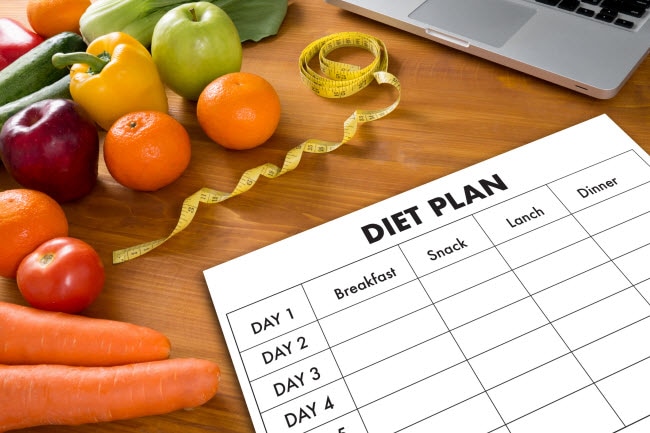If you have tried virtually every weight loss diet on the market trying to shed unwanted pounds, you’re certainly not alone. Given that an estimated 160 million Americans are either obese or overweight—that’s nearly three-quarters of men and over 60% of women—the perpetual allure of fad diets is no surprise, especially those that “promise” quick results.
Sadly, most of these diets are unsustainable for many reasons—and may even backfire on us with added pounds. According to Gary Foster, Ph.D., clinical director of the Weight and Eating Disorders Program at the University of Pennsylvania, nearly 65 percent of dieters return to their starting weight within three years, while barely 5 percent who lose weight on a severe calorie-restriction or “crash” diet will keep it off.
There are, however, safe, healthy and effective ways to drop unwanted fat for good. If you’re fed up with yo-yo dieting and prepared to make some key lifestyle changes, you’ve got the right mindset. Here are some important questions to ask yourself before starting any diet program:
1. What is your “why”?
It’s valuable to determine why you want to lose weight before embarking on a new diet regimen. List all the reasons you can think of, as well as the benefits you will experience when you reach—and can maintain—your goal. Is to improve your health, look and feel years younger, reduce risk of illness down the line, enjoy your favorite clothes, boost your energy, tap into a whole new body confidence, or all that and more? Build a strong case for yourself and this highly worthwhile project, and review your list daily.
2. Is the timing right?
There is no instant transformation to a trim, fit, healthy bod. That involves behavior change, but it’s well worth it because once you modify your lifestyle to support your goals, you’re highly likely to maintain your healthy new habits and trim physique ongoing. It is, however, important to start when you can devote the necessary attention to your plan—at least for the 21 days typically required to form permanent new habits. That means creating space in your daily schedule to find appealing recipes/ideas for lighter eating, shop for fresh, whole foods, plan and prepare meals, pack healthy snacks, etc.
3. Will you journal daily?
Tracking what you consume in a food journal on a daily basis can boost your odds of success immeasurably. Your daily entry makes you accountable to yourself; it’s a conscious reminder that you are responsible for what you eat and drink and why. It also helps you tune into your body, and to determine if/when you may be engaging in “situational” or impulse munching rather than addressing genuine hunger. You’ll also be able to pinpoint triggers for “emotional eating,” a common culprit in weight gain. Through your daily log, you can better identify these patterns, resolve underlying issues, and reclaim a healthy relationship with food.
4. Can you incorporate daily exercise?
What you eat may have the greatest impact on your weight loss, but moderate exercise plays crucial roles, such as helping to ensure that the weight you drop is unwanted fat, not metabolism-boosting lean muscle. “Exercise, particularly resistance exercise, adds muscle to help counteract any potential drop in metabolism," explains Dr. Micah J. Eimer, co-director of the sports cardiology program at the Northwestern Medicine Bluhm Cardiovascular Institute.
A 2016 study published in the The American Journal of Clinical Nutrition found that men who combined a low-calorie, high-protein diet with high-intensity resistance (weight) training were able to effectively burn 10.56 pounds of fat while gaining 2.64 pounds of lean muscle. More lean muscle creates a faster metabolism which means you can consume more calories while you lose the fat.
5. Can you address weight loss saboteurs?
A weight loss saboteur is any person, place, thing or behavior that could derail your success. From well-meaning family and friends to travel, stress, environmental and emotional cues and more, you may feel quite challenged on occasion. Well, the best defense is a good offense, meaning preparation. You will prevail by keeping your eye on the prize and continually asking yourself whether a given choice is taking you where you want to go, or setting back your weight loss efforts.
The answers to these pivotal questions are crucial. Basing your actions on a well-thought out foundation can help you escape past pitfalls, successfully change your habits, and finally achieve sustainable, lasting results. To thine own self be true. You can do this!




